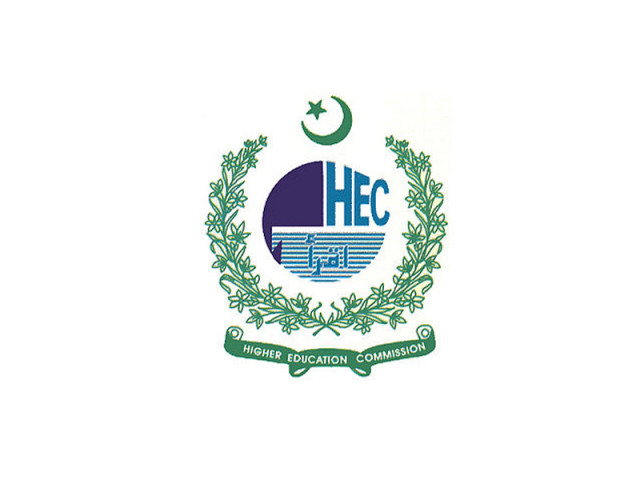Long way to go: HEC makes little headway on many fronts
Fails to recover money from scholars who breached agreements, or to implement uniform fee structure for universities

Though it has not been without successes, the Higher Education Commission (HEC), has failed on many fronts since its inception in 2002.
The HEC has made its mark taking several initiatives including sending Pakistani scholars abroad on scholarships, besides providing indigenous scholarships to thousands of students over the years for the promotion of higher education in the country.
Over 240 public and private universities are currently functioning in the country and all public sector universities are predominantly funded by the HEC, the successor to the University Grants Commission.
But in many cases, the problems lie in the fine print of these achievements.
Failure to recover money from scholars who breached agreements
According to an Auditor General of Pakistan report submitted before the National Assembly last year, the HEC had failed to recover Rs136 million from scholars who breached various terms and conditions of local and foreign scholarships during the last five years.
According to HEC rules, agreement breaches warrant the imposition of penalties up to 25 per cent of the amount paid plus the principle payment, besides cancellation of the scholarships.
Fee structure
The HEC has failed to set criteria for a uniform fee structure for universities and almost every public university has its own fee structure and criteria regarding increases. Data shared by the HEC regarding the fee structure also shows glaring disparities.
International Islamic University Islamabad charges Rs40,760 per year for bachelors students in arts and humanities programmes. For the same programme in the same discipline, Comsats Institute of Information Technology (CIIT) charges Rs134,000 per year.
Similarly, for a PhD in social sciences, the National University of Modern Languages charges Rs24,000
per year, while the same programme at Pakistan Institute of Development Economics, Islamabad costs Rs100,400 per year.
The discrepancies are just as noticeable in engineering, computer and management sciences programmes.
National Testing Service
In 2002, the HEC authorised the National Testing Service (NTS) to conduct entry tests for universities and for foreign and indigenous scholarships, but in March this year, the Lahore High Court termed the body unconstitutional. The HEC has since failed to satisfy the court on how the body was given a contract to conduct tests.
The HEC Ordinance has no such provisions for authorising a testing body to conduct tests. The court had also directed the HEC to make amendments to its ordinance to provide a proper regulatory statutory framework to establish, monitor and supervise the NTS.
The HEC, however, has failed to make progress on the issue and many universities have lifted the NTS condition for admissions, while a few have retained it in lieu of a suitable alternative.
An HEC official claimed that “work is under way for formulation of such rules”.
Recruitment rules
The HEC has not yet formulated its own rules for faculty and other staff recruitment, claiming that its methods mirror Establishment Division rules. At the same time, the HEC has deviated from Establishment criteria in a
number of cases.
Due to the absence of any rules, during the Pervez Musharraf’s era, unqualified people were hired against technical positions in the HEC on lucrative contracts awarded under the Management Pay Scale system. Many such officials remain in the body.
The HEC has also failed to implement its own orders regarding faculty hiring. “The HEC has no viable follow-up
body to implement the orders,” an official at the HEC said.
In April 2012, the HEC issued a letter asking universities to ensure MPhil qualification for a lecturer and a PhD qualification for assistant professor while making hiring after 2015. But according to an HEC official, nothing has practically been done to implement the order.
Harassment
Only two universities in the entire country have formed committees on campuses to take up sexual harassment cases, while the HEC has failed to get any of its orders on the issue implemented by the other varsities.
On fee issues, HEC spokesperson Ayesha Ikram said that since the HEC releases 60 per cent of funds for universities, they have to keep raising fees to meet other expenses.
“The HEC governing body has given the go-ahead for amending rules to outsource the testing service and we are soon going to advertise tenders soon,” she said.



















COMMENTS
Comments are moderated and generally will be posted if they are on-topic and not abusive.
For more information, please see our Comments FAQ